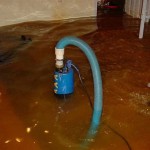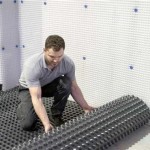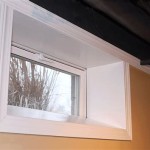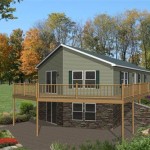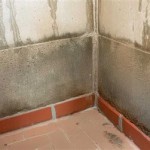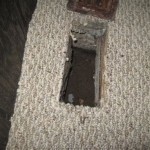How To Stop Water From Seeping Through Basement Walls
Water seepage through basement walls is a common problem faced by homeowners, especially during heavy rains or flooding. If left unchecked, water seepage can lead to significant structural damage, mold growth, and a host of other problems. Here are some effective solutions to stop water from seeping through basement walls and protect your home:
1. Identify the Source of the Water
Before attempting any repairs, it is crucial to identify the source of the water seepage. Common sources include cracks in the foundation, poor drainage around the house, clogged gutters and downspouts, or hydrostatic pressure from the surrounding soil. Once the source is identified, you can develop an effective solution to address it.
2. Seal Cracks and Holes
Cracks and holes in the basement walls provide easy entry points for water. Inspect the walls thoroughly and seal any cracks or holes with a high-quality sealant or hydraulic cement. For larger cracks, consider using epoxy injection to create a more durable and waterproof seal.
3. Improve Drainage
Poor drainage around the house can lead to water accumulation near the foundation, increasing the risk of seepage. Install gutters and downspouts to divert rainwater away from the house. Ensure that the gutters are clean and the downspouts extend at least 6 feet away from the foundation. Consider adding a French drain or weeping tile system around the perimeter of the house to collect and redirect excess water.
4. Waterproof the Walls
Applying a waterproofing membrane or coating to the basement walls can create a barrier against water проникновение. There are various waterproofing products available, such as asphalt-based coatings, rubberized membranes, or crystalline sealers. Choose a product that is suitable for your basement conditions and apply it according to the manufacturer's instructions.
5. Install Sump Pump
If your basement is prone to flooding or has a high water table, installing a sump pump can help remove excess water. Sump pumps are devices that automatically pump water out of the basement when the water level rises. Choose a sump pump with sufficient capacity to handle the amount of water that accumulates in your basement.
6. Control Hydrostatic Pressure
Hydrostatic pressure is the force exerted by water against a structure. In areas with high groundwater levels, hydrostatic pressure can push water through even the smallest cracks or pores in the basement walls. Installing a pressure relief system, such as a dimple mat or Platon drainage board, can help reduce hydrostatic pressure and prevent water from seeping into the basement.
7. Inspect and Maintain Regularly
Once you have implemented these solutions, it is important to regularly inspect your basement walls and drainage system for any signs of water seepage or damage. Address any issues promptly to prevent further problems. Periodically clean gutters and downspouts, check the sump pump, and inspect the waterproofing system for any tears or leaks.
By following these steps, you can effectively stop water from seeping through basement walls and protect your home from moisture damage, structural issues, and health hazards. Remember, it is always advisable to consult with a qualified contractor if you have significant water seepage problems or are unsure about the best course of action.

Wet Basement Diy Repair Guide Radonseal

How To Stop Water From Seeping Through Basement Walls

7 Ways To Stop Rain Leaking Into Your Basement Baker S Waterproofing

Finding And Fixing Basement Leaks How To Waterproof Your

How To Stop Water From Seeping Through Your Basement Walls

12 Tips For Fixing A Leaky Basement Family Handyman

Get To Know How A Leaky Basement Can Ruin Your Home

Wet Leaking Basement Waterproofing Solutions Albany Schenectady Ny

Why Your Basement Leaks In Heavy Rain

Waterproofing Basement Walls Dos And Don Ts To Remember Bob Vila
See Also

